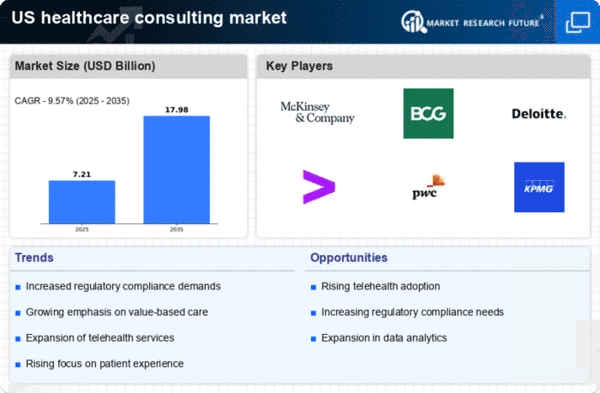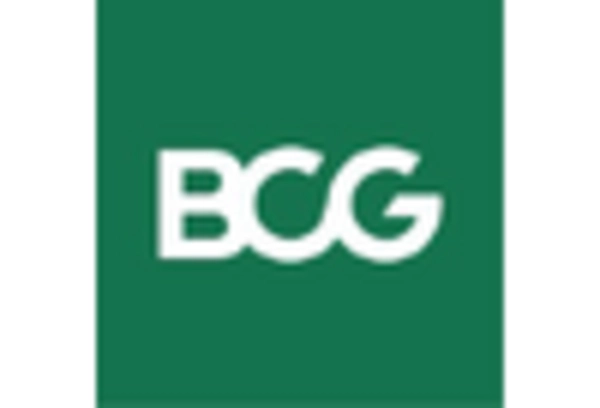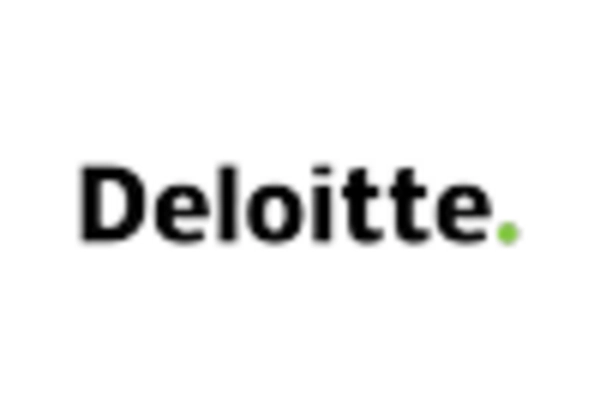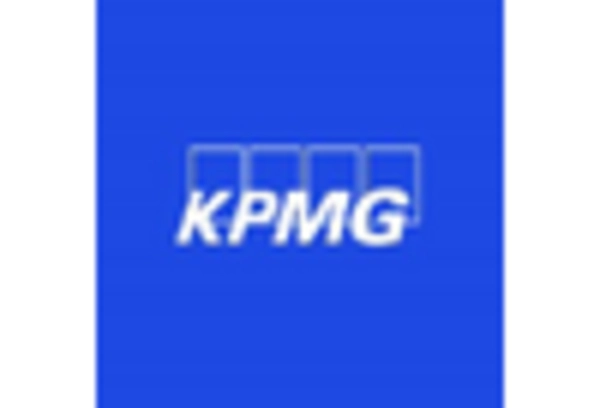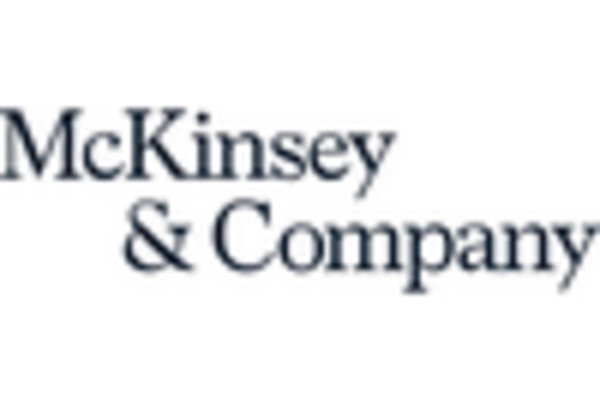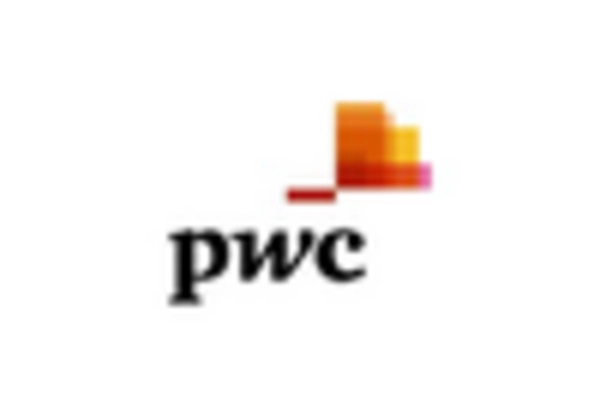Evolving Regulatory Landscape
The healthcare consulting-services market is significantly influenced by the evolving regulatory landscape. As new regulations emerge, healthcare organizations face increasing pressure to comply with complex legal requirements. Consulting firms are essential in helping these organizations navigate compliance challenges, ensuring adherence to federal and state regulations. The market for compliance consulting is projected to grow by 15% annually, reflecting the heightened need for expert guidance. This driver underscores the importance of consulting services in mitigating risks associated with regulatory non-compliance, thereby reinforcing the role of the healthcare consulting-services market in supporting organizational stability.
Shift Towards Patient-Centric Models
The healthcare consulting-services market is witnessing a significant shift towards patient-centric care models. This transformation is characterized by a focus on personalized treatment plans and enhanced patient engagement. Consulting firms are instrumental in guiding healthcare providers through this transition, helping them to implement strategies that prioritize patient needs. Data indicates that organizations adopting patient-centric approaches can see improvements in patient satisfaction scores by as much as 30%. As the industry moves towards these models, the demand for specialized consulting services is likely to increase, positioning the healthcare consulting-services market for substantial growth.
Rising Demand for Operational Efficiency
The healthcare consulting-services market is experiencing a notable surge in demand for operational efficiency. As healthcare organizations strive to reduce costs while improving service delivery, consulting firms are increasingly sought after to streamline processes. According to recent data, healthcare providers that engage consulting services can achieve operational cost reductions of up to 20%. This trend is driven by the need to optimize resource allocation and enhance patient care outcomes. The healthcare consulting-services market is thus positioned to benefit from this growing emphasis on efficiency, as organizations look to consultants for expertise in process reengineering and performance improvement strategies.
Focus on Healthcare Workforce Optimization
The healthcare consulting-services market is increasingly focused on workforce optimization as organizations seek to enhance staff productivity and satisfaction. With a growing emphasis on employee engagement and retention, consulting firms are called upon to develop strategies that align workforce capabilities with organizational goals. Data indicates that healthcare organizations that invest in workforce optimization can experience a 25% increase in employee satisfaction, which directly correlates with improved patient care. This trend highlights the critical role of consulting services in shaping workforce strategies, thereby driving growth within the healthcare consulting-services market.
Increased Investment in Healthcare Technology
The healthcare consulting-services market is benefiting from increased investment in healthcare technology. As organizations allocate more resources towards digital health solutions, the need for expert guidance in technology implementation becomes paramount. Reports suggest that healthcare IT spending is projected to reach $200 billion by 2026, highlighting the potential for consulting firms to play a critical role in this landscape. Consultants are often engaged to assist with the integration of electronic health records, telemedicine platforms, and data analytics tools. This trend not only enhances operational capabilities but also drives demand for consulting services within the healthcare consulting-services market.


